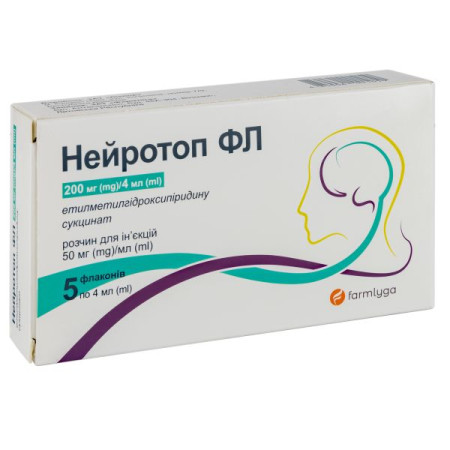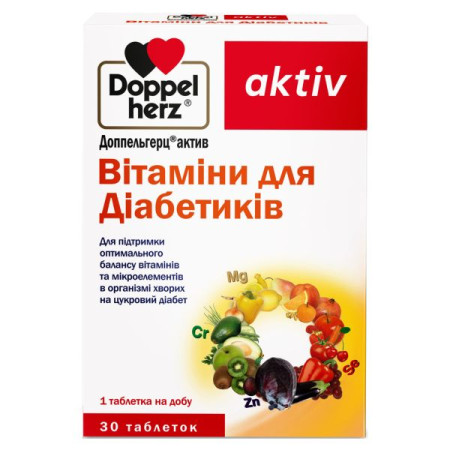Flamidez gel tube 40 g

Instructions for Flamidez gel tube 40 g
Composition
active ingredients: diclofenac diethylamine (diclofenaci diethylaminum), methyl salicylate (methylii salicylas), levomenthol (levomentholum);
1 g of gel contains diclofenac diethylamine 11.6 mg (equivalent to diclofenac sodium 10 mg), methyl salicylate 100 mg, levomenthol 50 mg;
Excipients: benzyl alcohol; carbopol 934; propylene glycol; citric acid, monohydrate; isopropyl alcohol; disodium edetate; polyethoxylated hydrogenated castor oil; diethylamine; purified water.
Dosage form
Gel.
Main physicochemical properties: white soft mass.
Pharmacotherapeutic group
Topical agents for joint and muscle pain. ATX code M02A A65.
Pharmacological properties
Pharmacodynamics
Flamidez gel has a local analgesic, anti-inflammatory and anti-edematous effect. The pharmacological action of the drug is due to the components that make up its composition.
Diclofenac. Diclofenac is a nonsteroidal anti-inflammatory drug (NSAID) with pronounced analgesic, anti-inflammatory, antirheumatic and antipyretic effects. The main mechanism of action is the inhibition of cyclooxygenases and disruption of prostaglandin biosynthesis.
In inflammation caused by injuries or rheumatic diseases, the use of diclofenac leads to a reduction in pain, tissue swelling, and a reduction in the period of restoration of functions of damaged joints, ligaments, tendons, and muscles.
Methyl salicylate. Methyl salicylate is a derivative of salicylic acid and has a local irritant effect. By irritating skin receptors, methyl salicylate leads to the creation and release into the blood of a large number of biologically active substances that regulate pain sensitivity. Substance P is released from neurons. Reducing the accumulation of substance P in nerve endings leads to a decrease in pain. In addition, methyl salicylate, which belongs to the group of NSAIDs, inhibits the synthesis of prostaglandins due to the inhibition of cyclooxygenases, which reduces swelling and infiltration of inflamed tissues.
Levomenthol. Levomenthol causes irritation of cold receptors, has a vasodilating and moderate analgesic effect, providing a feeling of coolness. Promotes better penetration of active ingredients through the skin.
Pharmacokinetics
Diclofenac was detected in blood plasma after topical application of 2 g of the drug three times a day to the lower leg for 6 days. The average pharmacokinetic parameters were: AUC0-t – 9 ng∙h/ml, Cmax – 4 ng/ml and Tmax – 4.5 hours. While with oral administration of 75 mg of diclofenac, the area under the pharmacokinetic curve AUC is 1600 ng∙h/ml. Therefore, the systemic bioavailability of diclofenac with topical application is significantly lower than with oral administration, which reduces the risk of side effects.
Approximately 99% of diclofenac binds to blood plasma proteins.
Methyl salicylate is rapidly absorbed through the skin and excreted mainly in the urine.
Levomenthol is excreted in urine and bile in the form of glucuronide.
Indication
Local treatment of myositis, fibrositis, sciatica, muscle and tendon strains, traumatic injuries of the musculoskeletal system, pain in muscles and joints during heavy physical exertion, inflammatory and degenerative joint diseases, rheumatic lesions of the musculoskeletal system: bursitis, arthritis, tendosynovitis, tendonitis.
Contraindication
- Individual hypersensitivity to diclofenac, acetylsalicylic acid, or other non-steroidal anti-inflammatory drugs, or to any other component of the drug.
- History of attacks of bronchial asthma, urticaria or acute rhinitis caused by taking acetylsalicylic acid and other NSAIDs.
- Damage to the epidermis, open wounds in the area of application.
- Last trimester of pregnancy.
- Children under 14 years old.
Interaction with other medicinal products and other types of interactions
Due to the low systemic absorption of the drug when applied externally, interactions with other drugs are unlikely. However, possible interactions known for oral forms of diclofenac should be taken into account.
Although adequate controlled interaction studies have not been conducted, it is possible that excessive use of topical salicylates may increase the effects of coumarin anticoagulants and antiplatelet agents. Therefore, caution should be exercised in patients taking coumarin anticoagulants and antiplatelet agents, including aspirin.
Application features
Flamidez gel is for external use only. The drug should not be taken internally.
Before using the gel, you should consult a doctor if you have a history of the following diseases: gastric and duodenal ulcers, liver and kidney dysfunction, severe disorders of the hematopoietic system, bronchial asthma, nasal polyposis, allergic reactions.
After applying the gel, wash your hands to avoid contact of the drug with the eyes and mucous membranes.
The likelihood of developing systemic side effects with topical application of diclofenac is low compared to that when taking the drug internally, but increases when the drug is applied to relatively large skin surfaces for a long time.
If any skin rashes appear, the use of the drug should be discontinued.
It is recommended to apply the drug only to intact areas of the skin, preventing contact with inflamed, injured or infected skin, eyes and other mucous membranes.
The drug should not be used under an airtight occlusive dressing, but it can be used under a non-occlusive dressing. In case of ligament sprain, the affected area can be bandaged.
Flamidez gel contains propylene glycol, which may cause mild local skin irritation in some patients.
If the symptoms of the disease do not go away, you should consult a doctor.
Use during pregnancy or breastfeeding
Since the effect of inhibition of prostaglandin synthesis on the course of pregnancy with topical application of diclofenac has not been studied, the drug can be used during the first 6 months of pregnancy only if, in the opinion of the doctor, the expected benefit to the mother outweighs the risk to the fetus.
The use of the drug is contraindicated in the third trimester of pregnancy.
Effects on the mother and newborn, as well as at the end of pregnancy:
- possible prolongation of bleeding time, antiplatelet effect, which can be observed even at very low doses;
- inhibition of uterine contractions, which leads to delayed or prolonged labor.
Use of NSAIDs during pregnancy, starting from the 20th week, may cause rare but serious kidney problems in the unborn baby. As a result, the level of amniotic fluid may decrease and complications may occur.
NSAIDs should not be used from the 20th to the 28th week of pregnancy without a doctor's prescription. FLAMIDEZ GEL is contraindicated in the last trimester of pregnancy (from the 28th week until the end of pregnancy).
Breast-feeding.
During breastfeeding, the drug can be used only if, in the opinion of the doctor, the expected benefit to the mother outweighs the risk to the fetus. In this case, the drug should not be applied to the mammary glands or large areas of skin, and should not be used for a long time (more than 1 week).
If treatment is necessary, breastfeeding should be discontinued.
Fertility in women.
Like other NSAIDs, FLAMIDEZ GEL may impair female fertility and is therefore not recommended for use in women attempting to conceive. If a woman has difficulty conceiving or is undergoing investigation of infertility, discontinuation of FLAMIDEZ GEL should be considered.
The ability to influence the reaction speed when driving or working with other mechanisms
Flamidez gel, when applied externally, does not affect the ability to drive vehicles and complex mechanisms.
Method of administration and doses
For external use only.
Adults and children over 14 years of age should apply a small amount of gel, 2–4 g, the size of a cherry or walnut, to the affected area 3–4 times a day, gently rubbing in until completely absorbed. It is advisable to avoid prolonged use of the gel on large areas of skin and in large doses. The gel can be used simultaneously with oral diclofenac sodium tablets, subject to prior consultation with a doctor.
After applying the drug, hands should be washed, unless the area has not been treated.
The duration of treatment depends on the indications and effectiveness of the treatment and is determined by the doctor. The gel should not be used for more than 14 days for soft tissue injuries and rheumatism or more than 21 days for arthritis pain, unless otherwise recommended by the doctor.
Elderly patients can use normal doses.
Children
Contraindicated in children under 14 years of age. When using the drug in children over 14 years of age for longer than 7 days or if the symptoms of the disease worsen, a doctor should be consulted.
Overdose
Overdose is unlikely, since systemic absorption of diclofenac when applied topically is very low. In case of accidental ingestion, systemic adverse reactions may develop.
In case of accidental ingestion of the drug, gastric lavage, the use of adsorbents and symptomatic treatment with the use of therapeutic measures used to treat NSAID poisoning are indicated. The patient should consult a doctor. Symptomatic treatment is carried out with the appearance of signs of complications, such as increased blood pressure, renal failure, convulsions, respiratory depression, complications from the digestive tract.
Adverse reactions
Flamidez gel is usually well tolerated by patients.
Skin and connective tissue disorders: very rarely - allergic skin reactions; rarely - dermatitis, including contact (e.g., localized skin rash, itching, redness, swelling or papules), bullous dermatitis; isolated cases - generalized skin reactions, urticaria, angioedema, photosensitivity, bronchospasm, bronchial asthma. Burns at the site of application of the drug are possible.
Systemic reactions. If the gel is applied to large areas of skin for a long time, the possibility of systemic adverse reactions cannot be excluded. However, the probability of their occurrence after topical application of diclofenac is small compared to the frequency of adverse reactions during oral treatment with diclofenac. In the event of systemic reactions, the information provided in the instructions for medical use for other forms of diclofenac release should be followed.
If any skin rash appears, the use of the medicine should be discontinued.
If you experience any other side effects or unusual reactions, you should consult a doctor.
Expiration date
2 years.
Storage conditions
Store in the original packaging out of the reach of children at a temperature not exceeding 30 °C. Do not freeze.
Packaging
20 g, 30 g, 40 g or 100 g in a laminated tube; 1 tube in a cardboard box.
Vacation category
Without a prescription.
Producer
Encube Ethicals Private Limited.
Location of the manufacturer and address of its place of business
Plot No. C-1, Madkaim Industrial Estate, Madkaim, Post Mardol, Ponda, Goa – 403 404, India.
There are no reviews for this product.
There are no reviews for this product, be the first to leave your review.
No questions about this product, be the first and ask your question.













